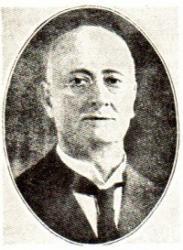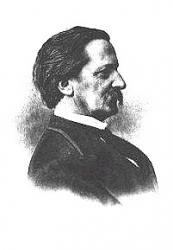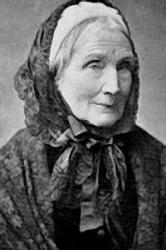Planning worship?
Check out our sister site, ZeteoSearch.org,
for 20+ additional resources related to your search.
- |
User Links
Person Results
‹ Return to hymnal



Export as CSV
Henriette Louise von Hayn
1724 - 1782 Person Name: Henriette Luise von Hayn Hymnal Number: d32 Author of "I am Jesus' little lamb, therefore glad and gay I am" in The Charm Hayn, Henrietta Luise von, daughter of Georg Heinrich von Hayn, master of the hounds to the Duke of Nassau, was born at Idstein, Nassau, May 22, 1724. In 1746 she was formally received into the Moravian community at Herrnhaag. There, and, after the dissolution of this community, at Grosshennersdorf, and, after 1751 at Herrnhut, she was engaged as teacher in the Girls' School; and after 1766 in caring for the invalid sisters of the community. She died at Herrnhut, Aug. 27, 1782. (Koch, vi. 443-447; Allgemeine Deutsche Biographie, xi. 1.58, &c.) She was a gifted hymnwriter. A fervent love to Christ pervades her produc¬tions; and they are remarkably free from the unpleasant sentimentalism and that dwelling on the physical details of our Lord's Passion which mars so many of the Moravian hymns of that period. Over 40 hymns or portions of hymns by her are included in the Brüder Gesang-Buch of 1778. Only one has come into English use outside the Moravian hymnbooks, viz.:—
Weil ich Jesu Schaflein bin. Children. This beautiful hymn for children, regarded as Lambs of the Good Shepherd, first appeared in the Brüder Gesang-Buch, 1778, No. 1179, in 3 st. of 6 1. It has been included in many recent German collections, as the Berlin Geistliche Lieder, ed. 1863, No. 120. Translated as: —
1. Jesus makes my heart rejoice, in full, by F. W. Foster and J. Miller, as No. 576 in the Moravian Hymn Book, 1789 (1886, No. 1006). Included, from the edition of 1826, in Dr. Pagenstecher's Collection, 1864, and others.
2. Seeing I am Jesus' lamb, a good and full translation by Miss Winkworth in her Lyra Germanica, 2nd Ser., 1858, p. 90. Repeated in the People's Hymnal 1867, Book of Praise for Children, 1881, and in America in the Pennsylvania Lutheran Church Book, 1868, &c.
3. I am Jesus' little lamb, a good and full translation by Dr. W. F. Stevenson for his Hymns for Church & Home, 1873, c. 58, dated 1871. Repeated in Allon's Children's Worship, 1878, the Methodist Sunday School Hymnbook, 1883, and others.
Another translation is : "Since I'm Jesus' sheep I am," by R. Massie, in the Day of Rest, 1880, p. 622. [Rev. James Mearns, M.A.]
-- John Julian, Dictionary of Hymnology (1907)
Henriette Louise von Hayn
Maria Straub
1838 - 1898 Hymnal Number: d108 Author of "Forbid them not, forbid them not" in The Charm
Maria Straub
C. R. Blackall

1830 - 1924 Hymnal Number: d42 Author of "My home above" in The Charm Blackall, Christopher Ruby, M.D., born in New York State, 1830, and educated for the medical profession. For 15 years he followed his profession, including service in the army during the civil war. Subsequently he managed, for 14 years, a branch of the Baptist Publication Society, taking at the same time great interest in Sunday School work. He edited the Advanced Bible Lesson Quarterly, for 3 years, and also Our Little Ones.
1. The prize is set before us. Heaven anticipated. This is one of Dr. Blackall's most popular hymns for children. It was written in 1874 for the Sunday School of 2nd Baptist Church, Chicago, Illinois, and set to music by H. R. Palmer. It first appeared in Palmer's Songs of Love for the Bible School, 1874, from whence it has passed into numerous collections, including I. D. Sankey's Sacred Songs and Solos, Lond., 1881.
2. Follow the paths of Jesus. Following Jesus. This is included in the Baptist Hymn [& Tune] Book, Phila., 1871, No. 701.
3. Do the right, never fear. Duty . In W. R. Stevenson's School Hymnal, Lond., 1880, No. 269.
-- John Julian, Dictionary of Hymnology (1907)
C. R. Blackall
Josiah G. Holland

1819 - 1881 Hymnal Number: d90 Author of "The King in the manger" in The Charm Holland, Josiah Gilbert, was born at Belchertown, Massachusetts, July 24, 1819. He was for some time on the staff of the Springfield Republican, and became in 1870 the editor of Scribner's Magazine. He has written several successful books, and some poetical pieces. One of the latter, "For summer's bloom, and autumn's blight" (Praise in and through all things), was included, from Bitter Sweet, 1858, in the Boston Unitarian Hymn [and Tune] Book for the Church & Home, 1868. He died Oct. 12, 1881.
--John Julian, Dictionary of Hymnology (1907)
===============
Holland, J. G. , p. 529, ii. His Christmas Carol, “There's a star in the sky," from The Marble Prophecy and other Poems, 1872, is included in the American Methodist Hymnal, 1905. He died Oct. 12, 1881. [Rev. L. F. Benson, D.D.]
--John Julian, Dictionary of Hymnology, New Supplement (1907)
Josiah G. Holland
Simon Browne
1680 - 1732 Hymnal Number: d5 Author of "Bound for the better land" in The Charm Simon Browne was born at Shepton Mallet, Somersetshire, about 1680. He began to preach as an "Independent" before he was twenty years of age, and was soon after settled at Portsmouth. In 1716, he became pastor in London. In 1723, he met with some misfortunes, which preyed upon his mind, and produced that singular case of monomania, recorded in the text-books of Mental Philosophy; he thought that God had "annihilated in him the thinking substance, and utterly divested him of consciousness." "Notwithstanding," says Toplady, "instead of having no soul, he wrote, reasoned, and prayed as if he had two." He died in 1732. His publications number twenty-three, of which some are still in repute.
--Annotations of the Hymnal, Charles Hutchins, M.A., 1872.
==================
Browne, Simon. A contemporary of Dr. Watts, born at Shepton Mallet, Somersetshire, cir. 1680, and died in 1732. After studying for the Independent Ministry under the Rev. John Moore, of Bridgewater, he became pastor of an Independent charge in Portsmouth, and then, in 1716, of the Independent-Chapel in Old Jewry, London. His lateryears were clouded by a peculiar malady, under the influence of which "he imagined that God had in a gradual manner annihilated in him the thinking substance, and utterly divested him of consciousness." It is supposed that the death of a highwayman at his hands during a violent struggle, followed by that of his wife and son a short time after, had much to do in producing this sad result. Whilst thus contending that he had no power to think, he produced a work in defence of Christianity, another in defence of the Trinity, a third as an Exposition of the 1st Epistle to the Corinthians, and a fourth in the form of a Dictionary. His publications number over 20. Of these works, he is known to hymnology through his:—
Hymns and Spiritual Songs, in Three Books, designed as a Supplement to Dr. Watts, &c, 1720, 2nd edition 1741, 3rd edition 1760. It contains 166 hymns, 7 doxologies, and a Preface of some historical interest.
In the old collections Simon Browne's hymns (all of which are from the above collection) held a prominent position, but in modern hymnals they are fast passing out of use. The best known and most widely used are "Come, Holy [gracious] Spirit, Heavenly Dove," "O God, on Thee we all depend," and "Lord, at Thy feet we sinners lie." In addition the following are also in common use:—
1. Eternal God, Almighty Cause. Unity of God.
2. Eternal God, of beings First. God all in all .
3. Frequent the day of God returns. Sunday.
4. Great First of beings, Mighty Lord. Creation.
5. Great God, my joyful thanks to Thee. Thanksgiving.
6. Great God, Thy peerless excellence. Imitation of God.
7. Great Lord of earth and seas and skies. Providence.
8. Great Ruler of the earth and sky. Providence.
9. Hail, Holy Spirit, bright, immortal, Dove. Whitsuntide.
10. Hail, happy day, the [thou] day of holy rest. Sunday.
11. I cannot shun the stroke of death. Death.
12. Lord, Thou art good; all nature shows. Divine Goodness.
13. Lord, what a feeble frame is ours. Frailty of Life.
14. O God, on Thee we all depend. Confidence in God.
-- John Julian, Dictionary of Hymnology (1907)
Simon Browne
Mary Botham Howitt

1799 - 1888 Person Name: Mary Howitt Hymnal Number: d21 Author of "Beautiful flowers" in The Charm Howitt, Mary, née Botham, second daughter of Samuel Botham, a member of the Society of Friends, was born at Uttoxeter, Staffordshire, circa 1804, was married in 1823 to William Howitt, and died Jan. 30, 1888. Her publications have little in common with hymnody. They include poems, novels, translations of Swedish and Spanish works, and numerous contributions to magazines. In addition she was joint author with her husband of Literature and Romance of Northern Europe, 1852, &c. Her hymns include:—
1. God might have made the earth bring forth. The Use of Flowers. From her Birds and Flowers, and Other Country Things, Lond., N. D. (Preface, Sept. 28, 1837), p. 122, in 8 stanzas of 4 lines.
2. How goodly is the earth. Flower Services. From her Hymns and Fireside Verses, Lond., 1839, p. 167.
3. 0 spirit, freed from earth. Death and Burial. Altered from her poem, "The Ascent of the Spirit," in her Ballads and Other Poems, 1847, p. 318. Dr. Martineau dates this poem 1834.
Mrs. Howitt also contributed " Let me suffer, let me drain" (The Willing Disciple), and " Clothe me with Thy saving grace " (The Cry of the spirit) to Lyra Britannica, 1867.
-- John Julian, Dictionary of Hymnology
=============================
Howitt, Mary, p. 541, i. Her hymn “Let me suffer; let me drain," is the opening hymn of the Lays of the Sanctuary, 1859. She died Jan. 30, 1888.
--John Julian, Dictionary of Hymnology, Appendix, Part II (1907)
Mary Botham Howitt
J. A. Butterfield
1837 - 1891 Hymnal Number: d34 Author of "I'll not forget to pray" in The Charm
J. A. Butterfield
Martha A. W. Cook
1806 - 1874 Hymnal Number: d43 Author of "In some way or other, the Lord will provide" in The Charm Martha Elizabeth Duncan Walker Cook USA 1806-1874. Born in Northcumberland County, PA, she married Rev. Parsons Cook, editor of a Boston paper called “The Puritan Recorder”. She contributed to, and for a time, was editor of the “Continental Monthly”. She translated “The life of Chopin”, by Franz Liszt, from the French in 1863. She also translated “Undivine comedy” by Zygmund Krasinski in 1875. She died in Hoboken, NJ.
John Perry
Martha A. W. Cook
Sidney Dyer
1814 - 1898 Hymnal Number: d94 Author of "Be in earnest" in The Charm Dyer, Sidney, who served in the U. S. Army from 1831 to c. 1840, is a native of White Creek, Washington County, New York, where he was born in 1814. On leaving the army he was ordained a Baptist Minister in 1842, and acted first as a Missionary to the Choctaws, then as Pastor in Indianapolis, Indiana (1852), and as Secretary to the Baptist Publication Society, Phila. (1859). He has published sundry works, and in the Southwestern Psalmist, 1851, 16 of his hymns are found.
The following are later and undated:—
1. Go, preach the blest salvation. Missions. In the Baptist Praise Book, 1871, and The Baptist Hymn & Tune Book, 1871.
2. Great Framer [Maker] of unnumbered worlds. National Humiliation. In the Boston Unitarian Hymn [and Tune] Book, 1868, and others.
3. When faint and weary toiling. Work whilst it is day. In the Baptist Praise Book, 1871.
4. Work, for the night is coming. Duty. This hymn is in wider use than the foregoing, but though often ascribed to Dyer, is really by Miss Anna L. Walker, of Canada, who published a volume of Poems, 1868. S. Dyer, in 1854, wrote a hymn on the same subject for a Sunday-school in Indianapolis, and hence the confusion between the two. In 1882 a cento beginning with the same stanza was given in Whiting's (English) Hymns for the Church Catholic, No. 366. Of this cento, stanzas i., ii. are by Miss Walker; and stanzas iii., iv. by Miss Whiting, daughter of the editor of that collection. [Rev.F. M. Bird, M.A.]
-- John Julian, Dictionary of Hymnology (1907)
==================
Dyer, S., p. 317, ii. Additional hymns by Dr. Dyer are given in the Baptist Sursum Corda, Phila., 1898, with the following dates :—
1. Enter, Jesus bids thee welcome. Invitation. 1883.
2. No more with horrors veil the tomb. Burial. 1897.
Dr. Dyer d. in 1898.
--John Julian, Dictionary of Hymnology, New Supplement (1907)
=================
Dyer, Sidney. (White Creek, New York, February 11, 1814--December 22, 1898, Philadelphia). Baptist. Indiana State University, honorary A.M. ; Bucknell University, honorary Ph.D. Missionary to the Choctaws early in his career. Pastorates at Brownsville, New York, 1842; Indianapolis, 1852-1859. District secretary of the American Baptist Publication Society, Philadelphia, 1859-1885. Author of eight religious books designed for children, two volumes of verse: Voices of Nature (Louisville, 1849), and Songs and Ballads (Indianapolis, 1857). Wrote a large number of hymns in Sunday School as well as church collections. In 1851, he published The South Western Psalmist (Louisville), which became known as Dyer's Psalmist. Of 467 hymns, 16 are by Dyer. Also wrote a prize-winning hymn "O wondrous land! thy onward march sublime" for the Jubilee of the American Baptist Home Mission Society which was help in New York in 1882. This 66-stanza hymn may be found in Baptist Home Missions in North America: Including a Full Report of the Proceedings and Address of the Jubilee Meeting . . . (New York: Baptist Home Mission Rooms, 1883). "Work, for the night is coming," written by Annie L. (Walker) Coghill, was sometimes ascribed to Dyer. The confusion arose when, in 1854, Dyer wrote a text on the same subject for a Sunday School in Indianapolis.
--Deborah Carlton Loftis, DNAH Archives
Sidney Dyer


 My Starred Hymns
My Starred Hymns


